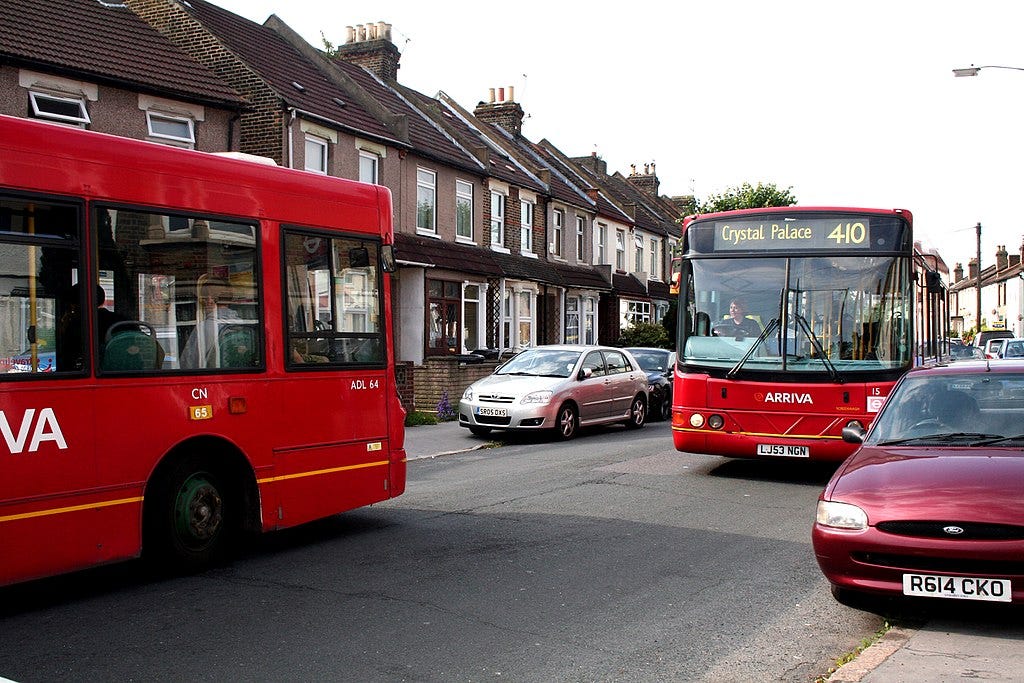Mobility Matters Daily #352 - Bus fares and bus economics
Good day my good friend.
It seems to have been a weekend when open secrets are even more open. One I will touch on later, but I am sure that you have seen the leaks in The Guardian about Uber. I will not comment further on this further. Needless to say that I know plenty of good people at Uber. I hope that for their sakes, the attitude and approached has changed. Because this is damning, and sadly not unexpected.
If you have any suggestions for interesting news items or bits of research to include in this newsletter, you can email me.
You should also join a lot of like-minded people at Mobility Camp in Bristol in September. Get your tickets now. Seriously, they are starting to really sell now.
James
English buses’ open secret is in the open
After being leaked on the excellent Bus and Train User Blog recently, the Sunday Times has confirmed that the Department for Transport is working with bus operators to introduce, for 6 months, a cap on the cost of single fares across England of £2. Starting in October. This is a very good policy, that should be welcomed, even if it doesn’t go as far as Germany.
Fare capping is common across many countries. But the impacts of such capping is not often understood well. The social impacts are mixed and highly variable between systems. There is even evidence that flat fares are a regressive fare policy when measured against social outcomes. But the impacts of fare capping vary wildly, and there is evidence from the likes of the London Travelcard that shows that they can increase ridership. So, whether or not the fare cap is a good thing remains to be seen.

The economics of public transport is highly complex, but it is important that it is understood
Related to the above story, yesterday I went back and reviewed this brilliant paper that reviewed the economics of running public transport networks, published last year. Assuming efficient resource allocation is the goal of the economic actors (the operators), then public transport struggles to balance the competing demands of an efficient operation, political priorities, and urban systems. This conclusion is particularly devastating:
We rarely see that decisions are made according to the abstract benchmark of the maximisation of economic welfare. A better understanding of political processes behind transport policies is inevitable to bringing research findings closer to social acceptance and actual implementation.
While the research is far more accepting of, for example, using price to manage demand, the age-old debate about subsidy still persists in the political arena. This is important to understand. If we are to achieve economic welfare outcomes, a change in the political dynamic around public transport is needed.
Random things
These links are meant to make you think about the things that affect our world in transport, and not just think about transport itself. I hope that you enjoy them.
The Suburban Lawn Will Never Be the Same (Bloomberg)
MIT scientists think they’ve discovered how to fully reverse climate change (Yahoo)
Europe’s Big And Expensive Energy Mistake (OilPrice)
Goodbye To Cash Tolls, And Some Notorious History, At George Washington Bridge (The Yeshiva World)
Something interesting


I have to say that I am extremely skeptical about the promise of hydrogen as a fuel. But this Twitter thread by Gnierwomir Flis gives you a lot of food for thought about how useful this fuel could be.
If you do nothing else today, then do this
One of my favourite podcasts, Behind the B*stards, has published two episodes on Robert Moses. The sense of humour behind the podcast is slightly anarchic, there is a lot of profanity, but I found out a lot about the man who destroyed New York. Including how he learned a lot from the British Empire.



